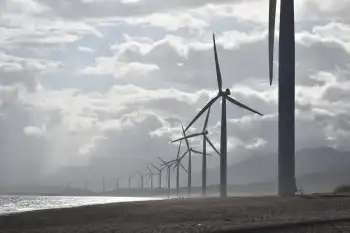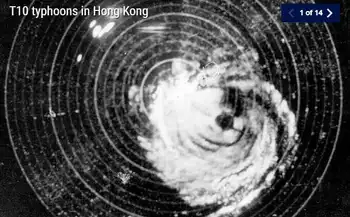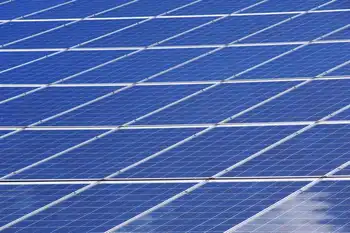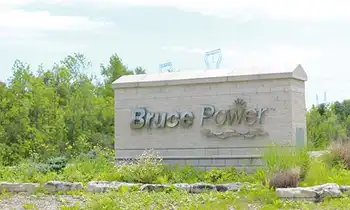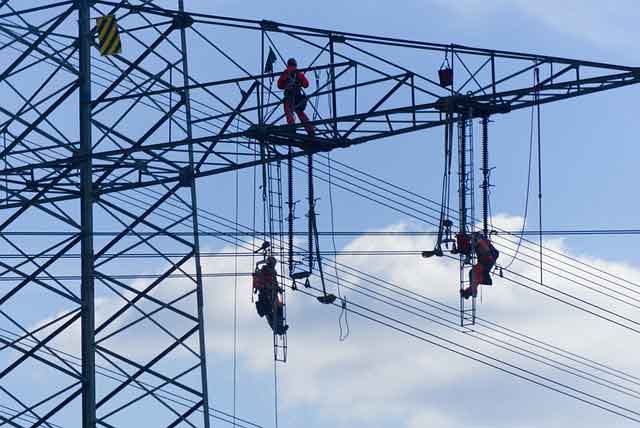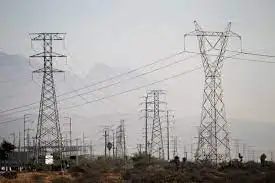Westar Energy, EPA settle lawsuit
By Associated Press
NFPA 70b Training - Electrical Maintenance
Our customized live online or in‑person group training can be delivered to your staff at your location.

- Live Online
- 12 hours Instructor-led
- Group Training Available
Westar Energy Inc. said it expects to spend at least $200 million on equipment to cut emissions at its coal-fired Jeffrey Energy Center, about 30 miles northwest of Topeka. But federal officials estimated the improvements will cost about $500 million. The bill is likely to be paid by Westar's 684,000 customers.
The U.S. Justice Department filed a lawsuit in February 2009 against Westar in U.S. District Court in Kansas City, Kansas. It came five years after the Environmental Protection Agency notified the utility that Westar had violated federal air pollution regulations.
The settlement also requires Westar to invest $6 million on other environmental projects and to pay a $3 million civil penalty, though the utility acknowledged no wrongdoing. The parties filed the agreement recently in federal court, and it must be approved by U.S. District Judge Julie Robinson.
The EPA said the settlement will require Jeffrey, in St. MaryÂ’s, to comply with the strictest standards for controlling sulfur dioxide emissions imposed for a coal-fired plant in a legal settlement. Federal officials said sulfur and nitrogen dioxide emissions ultimately will be cut by 85 percent, or nearly 79,000 tons annually, over 2007 levels.
"EPA is committed to protecting clean air for communities by making sure coal-fired power plants comply with the law," Cynthia Giles, an assistant administrator in EPA's enforcement office, said in a statement.
Westar described the settlement as "an extension of our environmental stewardship." General Counsel Larry Irick said the company said a lawsuit eventually could have forced Westar to install even more expensive technology, with no better effect on Jeffrey's emissions.
"It makes more sense to reach a settlement to invest in cleaner environment than to spend money on lengthy litigation arguing about these allegations," Irick said. "Protracted litigation won't accomplish any environmental benefit, no matter how the case turns out."
Westar said it will try to recover most of the cost of complying with the settlement — but not the civil penalty — through its rates. The utility has to get permission from Kansas regulators, but state law makes an increase to cover such costs almost automatic.
"There is a movement in the country for stringent environmental controls," said David Springe, chief attorney for the Citizens' Utility Ratepayers Board, a state agency representing small businesses and residential customers. "They may be installing something they were going to have to install anyway."
The Sierra Club, which sought to intervene in the lawsuit, said it is reviewing the settlement but expects the case ultimately "will result in cleaner air."
The legal dispute between Westar and the federal government centered on equipment Westar replaced for its three coal-fired units at Jeffrey in the 1990s. Jeffrey's generating capacity of 1,991 megawatts is almost 31 percent of Westar's total.
The EPA argued the changes at Jeffrey went beyond routine maintenance and that Westar failed to get necessary permits for the work. Also, the utility and federal officials disagreed on whether Westar was required to install more advanced technology than it did.
The company also estimates that from 2006 through 2009, it spent nearly $600 million to upgrade pollution controls at Jeffrey, installing new scrubbers to cut sulfur dioxide emissions.
But under the settlement, it will install a new system at one of its three units at Jeffrey by 2014 to reduce nitrogen dioxide emissions. Westar said such a system could then be installed on a second unit by 2016.
"The settlement agreement allows Westar to install this equipment in an orderly fashion," Irick said.
Westar's and federal officials' cost estimates for complying with the settlement vary widely because, the utility said, it believes it can find less expensive ways to reduce emissions from the second unit at Jeffrey.
The settlement also requires Westar to invest in plans to pursue additional wind-generated power, develop technology for truck stops to cut emissions from idling trucks and to cut emissions from its own vehicle fleet.





